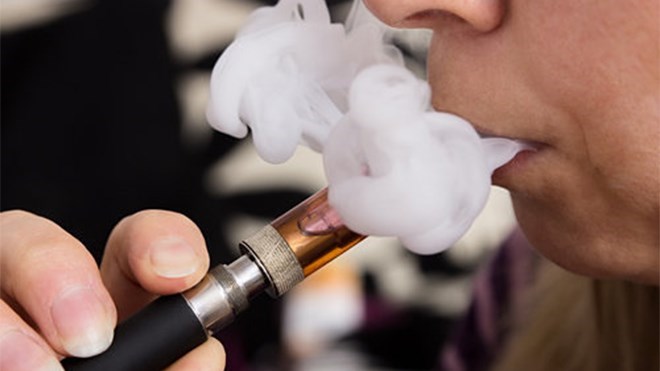The battle continues in the vaping industry to try to fend off interference from Health Canada and other public health agencies that regard vaping as a less-than-desirable substitute for smoking tobacco.
New rules from Health Canada are aimed at reducing the amount of nicotine that is allowed in a vaping device as well as forbidding the use of flavored vaping liquids that health agencies say are too attractive to younger people.
According to a recent Backgrounder document from Health Canada (June 2021), youth smoking is at its lowest level in decades, but it claims vaping is putting a new generation of Canadians at risk of nicotine addiction and the harms related to vaping. Health Canada is proposing new laws to make the activity as unappealing as possible.
The Health Canada argument is based on the idea that vaping — inhalation of flavoured vapours — is inherently dangerous.
"Most vaping products also contain nicotine, which is a highly addictive chemical. Children and youth are especially susceptible to the harmful effects of nicotine, as it can alter their brain development and affect their memory and concentration. In addition, children and youth may become dependent on nicotine at lower levels of exposure and more rapidly than adults," said the Health Canada document.
Arthur Cavallin of Sudbury doesn't agree with that line of thinking at all. As a former cigarette smoker, and as the owner of a vape shop, Cavallin said he knows first hand that vaping — inhaling smaller, controlled amounts of nicotine vapours — was able to get him to kick the more harmful cigarette habit, where he was inhaling smoke and other carcinogens.
Cavallin said the proposal to ban vaping flavours could just drive people back to conventional cigarettes.
“If people can't get what they're used to getting, they're going to go back to where they started, which was smoking,” he said.
“You know this isn't for everyone. There are people who will be able to stop vaping and stop smoking. Other people might want to continue vaping and using the flavours that are available to them, but it’s going to be in such small numbers it won't make any difference,” Cavallin predicted.
“The brick and mortar shops won't be around if they do the flavour ban. It's essentially killing the industry. I won't be able to support myself and my employees," said Cavallin.
He is part owner of Juice On The Loose Vaporizers, which has five locations across Northeastern Ontario, employing 18 people, most of them full timers.
"Honestly it doesn't look good if they decide to go through with the flavour bit." In addition to the flavour limit and the cap on nicotine, there is also a concern that a new tax on the industry is being planned. Cavallin said it is a three-pronged attack that could shut down some vape shops.
With the nicotine cap set to take place on July 23, many vape shops are encouraging customers to stock up now and in the next three weeks.
Cavallin said despite the nicotine ban, most vape shop owners see the proposed flavour ban as the more serious fight.
"It's based on the simple fact that they (Health Canada) claims it is for our health, but look at the LCBO and the flavoured alcohol," he said.
Critics have pointed to the alcohol industry where dozens of new brands of juice-flavoured and pop-flavoured coolers are now on the market, yet nothing is done to curb it.
Cavallin said if people cannot get their flavour choices in vaping, it will contribute to two things, both of which are worse in his opinion. One is that it will drive people back to cigarette smoking and the other option is that it will create a black market for flavoured vapes made in unknown labs with unknown chemicals.
He said Nova Scotia was one of the first provinces to ban flavours and the results were predictable.
"What they saw there was an increase in smoking rates as well as an increase in black market activity," said Cavallin.
Cavallin said the black market makes it easier for children to get into vaping.
He said the same thing would happen right across Canada if the new federal rules are approved.
"I would assume, obviously I don't know for sure, but we will see a large increase in smoking rates and a large decrease in people trying to get a healthier alternative to smoking," said Cavallin.
His retail website has more than just products. The site has a news page and an FAQ page where users can get updated information on vaping. He said he is hoping users will speak up against the vaping ban because it is an adult product for Canadian adults.
Cavallin said he knows he is not alone and that pro-vaping groups are taking action across Canada. He is urging users to contact their political leaders, even though he said many will have "blanket responses" in favour of protecting young people first.
That being said, Cavallin said he believes non-vapers and non-smokers should also take up the cause against the flavour ban.
"Absolutely, most people I know are vapers who have family members who are non-vapers or ex-smokers, who have already quit and know the struggle of quitting," said Cavallin.
"They can see the health benefits of a loved one who has quit, right?"
